Long Earth - Interview
by Andrew Twambley
published: 29 / 7 / 2021
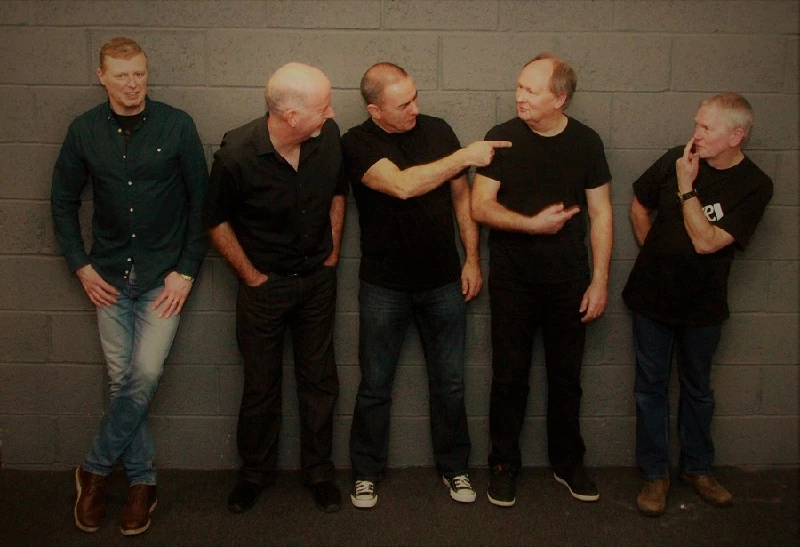
intro
Martin Haggarty, the vocalist with Glaswegian prog rock outfit Long Earth, chats to Andrew Twambley about his band's diverse influences and the affect of lockdown on them.
For a good number of people prog rock died when Rick Wakeman hung up his cloak and Peter Gabriel left Genesis and went off studying drums in Africa. The same people say punk was the final nail in the rotting coffin of the progressive corpse…but no… it was the kids and the rockers who turned to punk, allowing prog to ricochet off into an astral universe of its own untouched by safety pins and glue. Prog rock, however, survives today and indeed flourishes due to the accomplished musicians who have never given up the faith nor he belief in magic wands, two track albums and twenty-five minute keyboard solos. We ran into Martin Haggarty, the singer of Glasgow based prog rock band Long Earth, and pinned him to the wall with celestial daggers while asking him about the band, his music and the future of prog PB: For the benefit of people unfamiliar with the Prog Rock scene today, who are Long Earth? MARTIN HAGGARTY: Long Earth formed in 2016 in Glasgow when Mike Baxter (keyboards) bumped into bassist Gordon Mackie, an old bandmate from Identity Crisis. They decided to get together to play, inviting Gordon’s former Abel Ganz bandmate Ken Weir on drums. Gordon’s brother Neil joined on vocals, and then guitarist Renaldo McKim came on board. Mike, Gordon, Ken and Renaldo had all played the same Glasgow festival in the early 80’s but in three different bands, so they all knew each other. They recorded the first album ‘The Source’ a year later (produced by another ex Abel Ganz mate Hew Montgomery) but parted company with vocalist Neil after a few gigs and I was invited to join in 2018, having also been in Abel Ganz along with Gordon, Ken and producer Hew way back in 1984/85. We then set about working on material for what would become the ;Once Around the Sun’ album, which, with immaculate timing, was released a week before the firstl lockdown! PB: How has ‘Once Around the Sun’ fared given its unfortunate timing with COVID? MH: It was far from ideal as much of the PR got lost in the maelstrom while magazines and other media outlets rushed to reorganise schedules and workflows, and tried to make sense of home working. Also, all our gigs were cancelled, depriving us of sales opportunities at gigs and festivals. We, however, started to gather airplay from many prog and rock radio shows and stations, not just in the UK but in Europe, USA, South America and even as far as Australia. Several online magazines and radio DJs nominated the album as one of their top albums of 2020, which were not just restricted to prog albums. In some quarters we were in exalted company such as Bruce Springsteen…which was nice!. It seems to have longevity too, as we are still getting regular weekly airplay even now. People are still discovering the album, and regular orders are still coming through on both CD and download. Once we are able to get out and gig again we will make up some of the lost sales, but the opportunity to make a big splash out of the launch was lost. One unexpected thing was that in May we received an offer of a recording contract from an independent prog label based in Europe. We’ve released our two albums so far on Grand Tour Records, which is our friend Hew’s own label, and that suited us just fine at the time. We are currently negotiating terms for this proposed deal which could open us up to a bigger audience. The potential deal breaker could be that we are very anti-streaming. We do not entertain Spotify or any other platform that does not fairly reward artists. We sell downloads, but from what we saw with ‘The Source’ being on streaming for two years, all our streams combined wouldn’t buy us a pre-gig meal between us. I’m sure there will be a workaround somewhere. PB: From the title of the album and the fact that there are tracks named after each of the four seasons, is ‘Once Around the Sun’ that proggiest of things, a concept album…should I be thinking Rick Wakeman here? MH: Ha, well, half of it is. The first half of the album is made up of five stand alone songs, dealing with a diverse range of topics such as climate change, love, loss, the darkness that lives in us all, and serial killers! Murder was a big theme on the first album too, maybe not surprising as Mike Baxter used to be a forensic pathologist for the police, although this time around the idea was mine. The second half of the album is the ‘Once Around the Sun’ suite aka the four seasons. We had written four pieces of music, each of which struck me as having very distinct seasonal quality. However, singing about daffodils and snowploughs for half an hour does not tend to hold one’s attention for long, so I imagined myself in the story of a romantic relationship that started in Spring, blossomed in Summer, matured in Autumn and froze to a halt at the end of Winter – one trip around the sun. We think it works very well, and it seems to have caught fans’ imagination, especially when we played the entire suite live pre-lockdown. Radio stations have also picked up on these songs, as DJs frequently put together seasonally themed shows, guaranteeing us a little extra airplay. Maybe the next album should feature twelve songs based on months of the year? PB: It must be easier for an indie band to get airplay nowadays than it was twety or thirty years ago? MH: Yes and no. There are loads of dedicated DJs and music fans playing music and podcasting via the internet. Mainstream radio is, owever, inaccessible unless you have a big bag of money behind you from a major record company, and you fit with that station’s “commercial ideals”. Dedicated mainstream rock stations tend just to be a greatest hits jukebox of ‘Back in Black/Sweet Home Alabama/Stairway to Heaven’ and so on, guaranteed not to offend the corporate advertisers targeting the grey pound. The internet is, however, home to a multitude of niche global stations and shows, some run by seasoned pros, some by enthusiastic amateurs but all done out of a genuine love for the music. You don’t get millions of listeners, but you do get an enthusiastic response from those who tune in or listen back afterwards on podcasts of the shows. PB: As musicians of a certain age, it’s fair to say you’ve been around the block a few times… MH: We’ve all been in bands on and off since we were teenagers - we’ve dreamed rockstar dreams, released records, played festivals and then had to take sabbaticals while we got married, had families, built careers and all that before returning to our first love – making music. Although we play prog rock, we’ve all played a variety of different styles and genres over the years - Pop, rock, new wave, hard rock, and occasionally in covers bands too just to keep our hand in. PB: Glasgow has always been known as a music city. Is that your experience of it as an insider? MH: Yes, we’ve always produced great artists such as the Sensational Alex Harvey Band, Midge Ure, Simple Minds, Del Amitri and so many more. The 80’s was especially fertile and the singles charts always seemed to include at least one Glaswegian act. There were bands everywhere and plenty of venues to play, and you met so many people in various rehearsal and recording studios as well as gigs. The 80’s were hard for an unsigned prog rock band to make an impression in Glasgow, or indeed anywhere outside of London and the home counties. PB: So was/is there a Scottish prog scene? MH: Yes, there has been since the 80s and the whole “Neo-Prog” scene that culminated in bands like Marillion (with Scottish singer Fish) and Pallas (Aberdonians) being signed to major record labels. We also had Abel Ganz, (of course featuring three of Long Earth), Comedy of Errors, and one or two others. Many of these bands often gigged together, occasionally exchanging members, and in one form or another all exist today. Fish is a busy solo artist while Marillion still enjoy success, Pallas are still active, as are Abel Ganz and Comedy of Errors, the bands which spawned Long Earth and Grand Tour. Long Earth played on the same festival bill as Abel Ganz as recently as December 2019 and may well have gigs with Comedy of Errors again soon. There are friendships there that have lasted more than forty years, and a willingness for each other to do well. It’s never been a major scene, but it never went away. We also see guys out playing different genres who we know from way back, so the Glasgow music scene is still a vibrant one regardless of genre. PB: So punk didn’t “kill” prog then? MH: Not really. Punk Rock was mainly a UK thing apart from some of the CBGB’s stuff in the US which was a culturally a different thing. Punk was socio-political here, a reaction to the state of the nation, power cuts, racism, unemployment and disenfranchisement. As a genre, it really only lasted a couple of years before a ”new wave” of artists came through who had more or less all been chapping at the door for years – people like the Stranglers, Elvis Costello, Ian Dury – great bands. I loved the energy of punk and was a huge fan of it despite liking Genesis, Thin Lizzy and Kate Bush. People forget prog was still huge for the big acts back in 1977 and 1978, but the backlash from the likes of the ‘NME’ did lead to some of the lesser acts going quiet for quite a while. Meanwhile the major acts evolved their style to become more concise in the 80’s – Genesis and Peter Gabriel got bigger, more accessible, Yes became more commercial too. Tull continued to evolve as they had always done. Pink Floyd released ‘The Wall’, ‘The Final Cut’, ‘A Momentary Lapse of Reason’ and ended the 80s as stadium fillers. By the 90’s, even ELP were back recording and playing live. Many of these prog names still fill arenas and concert halls, and many of the lesser known bands have been touring since the 90’s. Bands like Radiohead and Muse and Steven Wilson/Porcupine Tree have brought a modern take on prog. In continental Europe there has always been less snobbery about musical genres, and so prog took less of a hit. It’s still the same. We get regular airplay in the Benelux countries, where we feature in shows alongside the likes of Pink Floyd, Bruce Springsteen, Abba and Donna Summer. To them, good music is good music. PB: Do you think prog has shaken off the old prejudices then? MH: I think so. There are hundreds of prog bands out there, albeit it’s an underground scene outside of the bigger names, but isn’t that true of most rock and pop these days. A new generation of people are now listening to music without any pre-conceived ideas. Mainstream music on radio and TV is homogenised to such an extent that a great many younger people are seeking out music by the likes of Queen, Bowie, Fleetwood Mac, Led Zep, and even Abba and Neil Diamond. My own sons are in their early 20s and listen to everything from Genesis and Yes to Rap music, Muse, Frank Sinatra and soundtrack music. They listen with an open mind and if they like it, they like it. No pigeonholes, no bias. Live, they’ve seen the likes of Yes, Jethro Tull, Fleetwood Mac, Roxy Music, Queen, Alice Cooper, Elton John and the New York Dolls to name a few. I think grass roots attendances for most genres are low however as music itself is less important to people today than it was thirty years ago, and has less of a perceived value, both financially and culturally. In a world of satellite and on demand TV/movies, video games, and wider access to sport and leisure facilities, music is a more niche thing, while us old farts are split between people going to see our old heroes (or their many tribute bands) out of nostalgia, and the people who still actively seek out new artists, buy new music and go see new bands. PB: So who are the main influences on Long Earth? MH: Obviously we all grew up listening to Genesis, Yes, Tull, Floyd, and all the other great 70’s prog acts, but we also listened to other music in the 70’s & 80’s like Bowie, Kate Bush, Roxy, Zeppelin, Lou Reed, plus the likes of Ian Dury, Japan, the Blue Nile. Between us we love prog, hard rock, glam, punk, new wave, electronica and folk. There’s no doubt that fifty to sixty years of studying music old and new gives you a huge pool of influences, some obvious, some subliminal. They all find a way into what we do somehow. What’s interesting to us is we’ve been reviewed extensively over the last couple of years, and the one thing that stands out to us is that we are never compared to one or two specific bands. There’s no “soundalike” tag applied to us, which is unusual. We hear a lot of other bands on prog stations and often spot the similarities and the lifts “Oh, that bit’s Floyd, they sound like Yes” or whatever, but people don’t tend to say things like that about us, which is a great thing. Nor do we shoehorn in a weird time signature every second song, or set out to write a twenty+ minute epic just for the sake of being “proggy”. We don’t set out with a “sound” in mind, no formula, no blueprint - we write music and try to serve the song, and whatever comes out just sounds like us, whether it’s a three minute acoustic piece or a twelve minute epic. We’re never going to be King Crimson - we’re much more accessible, and I think that’s because we have all listened to and played such a wide variety of music over decades. If a song feels right, it probably is right. We write to please ourselves and if someone else likes it, then that’s a bonus. Besides, we’re no good at golf. PB : What have you been up to in the last year or so since the release of ‘Once Around the Sun’? MH: We had gigs and festivals lined up which were obviously cancelled, and we couldn’t even get together to write, partly because we’re scattered across three regions, and partly because we’re not a band who write our individual songs and then tell the others how to play them. We bring our individual song ideas to the studio and then jam on them, change them, and blend them with bits of each other’s songs to form something different. I then assess the feel of each piece of music and what that suggests to me, then I write lyrics around that. So, basically Mike, Renaldo and I have been working on material in our own home studios and have exchanged these ideas and when we get together soon, we will be familiar enough to have a starting point for each piece and the five of us can start working through them for album 3. PB: Apart from writing the next album, what are your plans for the year ahead? MH: We’ve been trying to get more gigs in the diary for 2022, but so many gigs are backlogged that all 2021’s tours and festivals are being carried forward, and if you’re not on their bill, you’re finding gigs harder to come by. We’d like some higher level support gigs and festivals – maybe supporting some of our heroes from yesteryear. We do have the Prog in the Park 2.0, a one day indoor festival in Dunfermline and some headline gigs of our own, plus we are working on some co-headline gigs with bands of a similar stature to ourselves. We also have offers of gigs in Netherlands and beyond, but Brexit has complicated things and possibly made that unsustainable for the time being. We have made a lot of musician friends in various parts of the world. PB: A lot of prog bands these days seem into collaboration? MH: Yes, that’s true. Digital recording has opened up the possibility of collaborating with others across the entire world. You see bands such as Transatlantic, who are made up of members of other bands like Marillion, Spock’s Beard and Dream Theatre, and it’s a common occurrence now. In Long Earth some of us have side projects too. Mike has been working an album with a best-selling crime author who also writes and plays his own music, and Mike also stands by as second keyboard player for any Grand Tour live work. Ken drums in a covers band. I recently recorded a couple of things for a charity album by the Checking For Echo Project which musician Jon Farley put together featuring some of his songs and a couple of covers played by various prog artists – I hesitate to use the phrase “all star” because we’re certainly not that, but you get the picture – and I was invited to contribute to two or three songs, plus one of the cover versions on the album is a Long Earth song, ;My Suit of Armour’, but sung by Badfinger’s Andy Nixon. A second Checking For Echo Project album is slated for release later in the year. I’m also working on a 70’s retro-prog album with a friend in Southampton who has put together a wonderful piece of original work, very much in a 70’s prog style as an homage to the greats. Everything has been demo’d and proper recording starts shortly with a view to release in 2022. Providing you don’t have to make your living out of it, it’s an exciting time to be a musician. PB: To close, do you have anything else you want to say to our readers? MH: Yes, Progressive music is alive and kicking, even if it doesn’t command the same audiences it once did (unless you’re Genesis of course) so once lockdown is finally lifted, I would urge people to get out to venues big and small and support all types of music and musicians. And if you happen upon Long Earth, please give us a listen. And if you are Genesis, please can we have a half hour support slot on your upcoming dates? PB: Thank you.
Band Links:-
https://longearthmusic.com/https://www.facebook.com/longearth1/
https://twitter.com/longearth_music
https://longearth.bandcamp.com/
Play in YouTube:-
Picture Gallery:-
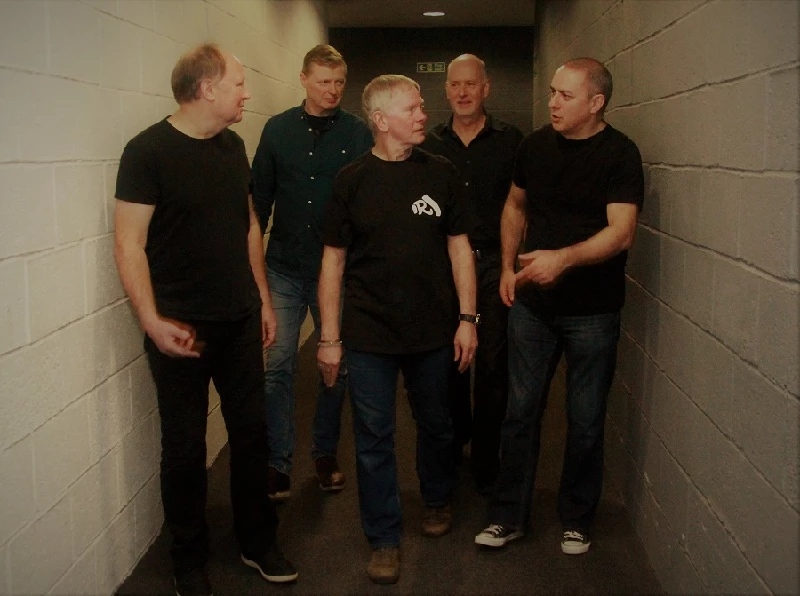
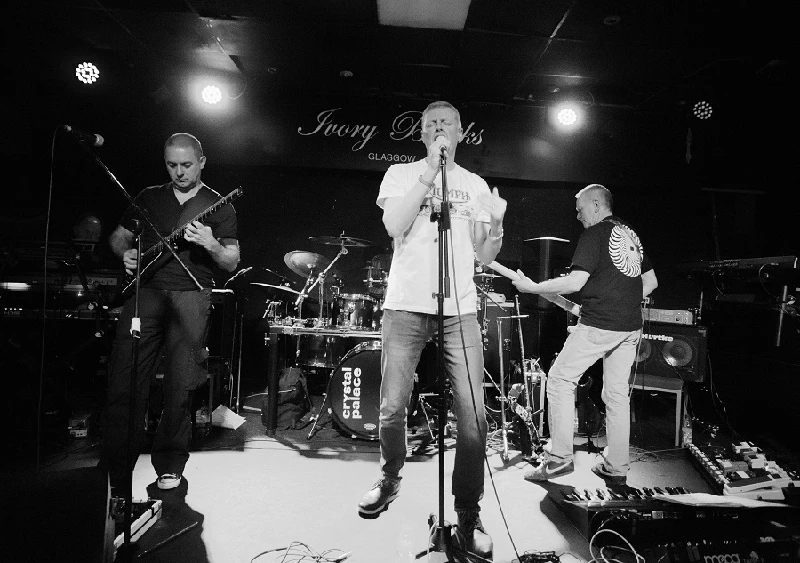
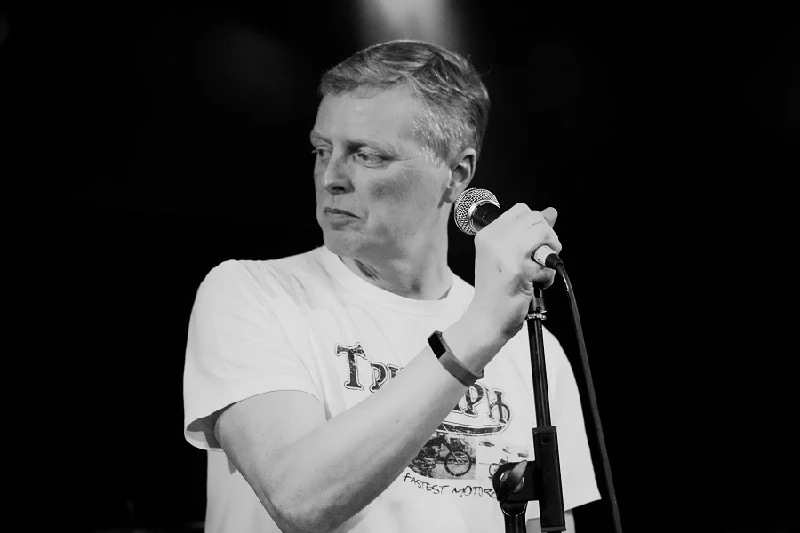
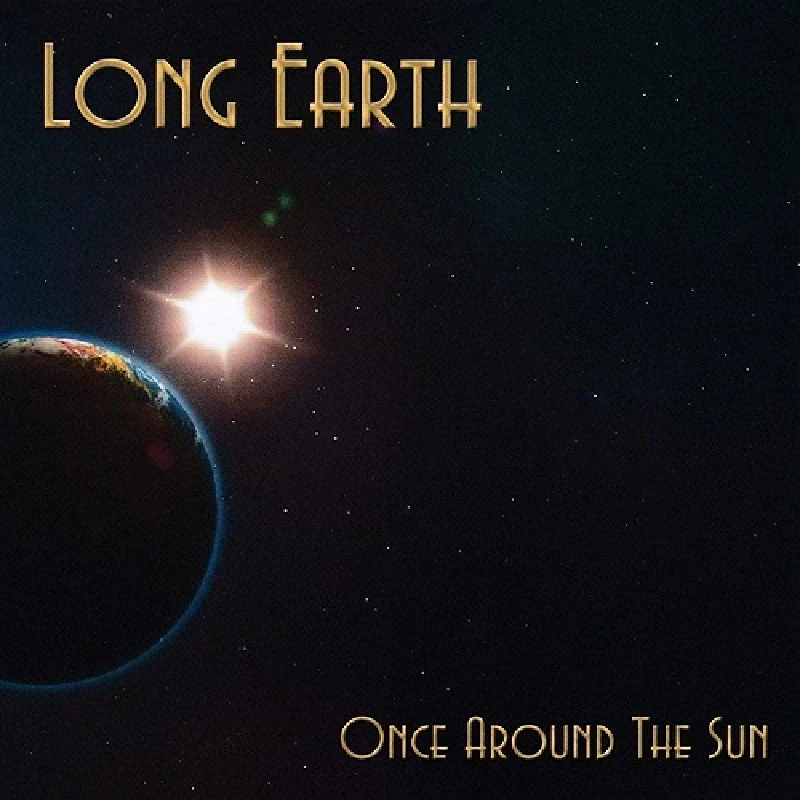
bandcamp
most viewed articles
current edition
Peter Doherty - Blackheath Halls, Blackheath and Palace Halls, Watford, 18/3/2025 and 21/3/2025Armory Show - Interview with Richard Jobson
Liz Mitchell - Interview
Deb Googe and Cara Tivey - Interview
Lauren Mayberry - Photoscapes
Max Bianco and the BlueHearts - Troubadour, London, 29/3/2025
Garfunkel and Garfunkel Jr. - Interview
Maarten Schiethart - Vinyl Stories
Clive Langer - Interview
Sukie Smith - Interview
previous editions
Heavenly - P.U.N.K. Girl EPBoomtown Rats - Ten Songs That Made Me Love....
Trudie Myerscough-Harris - Interview
Doris Brendel - Interview
Beautiful South - Ten Songs That Made Me Love...
Kay Russell - Interview with Kay Russell
Dwina Gibb - Interview
Pulp - Ten Songs That Made Me Love...
Barrie Barlow - Interview
Sound - Interview with Bi Marshall Part 1
most viewed reviews
current edition
Davey Woodward - Mumbo in the JumboNigel Stonier - Wolf Notes
Wings - Venus and Mars
Only Child - Holy Ghosts
Kate Daisy Grant and Nick Pynn - Songs For The Trees
Neil Campbell - The Turnaround
Philip Jeays - Victoria
Darkness - Dreams On Toast
Suzanne Vega - Flying With Angels
Charles Ellsworth - Cosmic Cannon Fodder
Pennyblackmusic Regular Contributors
Adrian Janes
Amanda J. Window
Andrew Twambley
Anthony Dhanendran
Benjamin Howarth
Cila Warncke
Daniel Cressey
Darren Aston
Dastardly
Dave Goodwin
Denzil Watson
Dominic B. Simpson
Eoghan Lyng
Fiona Hutchings
Harry Sherriff
Helen Tipping
Jamie Rowland
John Clarkson
Julie Cruickshank
Kimberly Bright
Lisa Torem
Maarten Schiethart